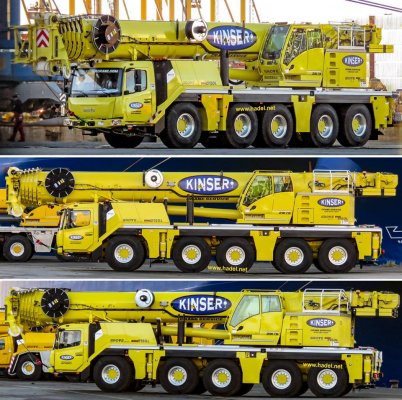Retired in April. Winter now in MN and I definitely want to leave town.
Probable use is touring with some week long stays with out of state friends and interesting places. I prefer a class A. I like diesel mostly because I have work trucks with the Ford V-10 and I'm not impressed with the ford drive train.
I don't care much about mileage but I do like the additional power of a diesel.
Typically 2 passengers, occasionally I expect we'll road trip with guests so sleeping for 4 people is adequate.
Class B is too small.
Been shopping Craigslist and visiting dealers.
1. Seems like you can get a LOT more RV if you can spend $40 -55k+. My observation is that the more expensive RV's lose more of their value vs. new purchase price so they represent a better value if the buyer can afford the extra $. Is this correct (or at least often true)?
2. Seems like diesels are not typically less than about 34' long unless class B? Correct?
3. What would be a fair price for a diesel shop to inspect a diesel drivetrain, brakes, etc.?
4. what are the advantages/disadvantages of a tag axle?
5. Is the 8.1 Chev considered superior to the Ford?
6. Any brands or models that are known to be trouble or chronically poor service.
other questions I ought to be asking ...
thx in advance to anyone taking the time to share their expertise.
Mark in MN
Probable use is touring with some week long stays with out of state friends and interesting places. I prefer a class A. I like diesel mostly because I have work trucks with the Ford V-10 and I'm not impressed with the ford drive train.
I don't care much about mileage but I do like the additional power of a diesel.
Typically 2 passengers, occasionally I expect we'll road trip with guests so sleeping for 4 people is adequate.
Class B is too small.
Been shopping Craigslist and visiting dealers.
1. Seems like you can get a LOT more RV if you can spend $40 -55k+. My observation is that the more expensive RV's lose more of their value vs. new purchase price so they represent a better value if the buyer can afford the extra $. Is this correct (or at least often true)?
2. Seems like diesels are not typically less than about 34' long unless class B? Correct?
3. What would be a fair price for a diesel shop to inspect a diesel drivetrain, brakes, etc.?
4. what are the advantages/disadvantages of a tag axle?
5. Is the 8.1 Chev considered superior to the Ford?
6. Any brands or models that are known to be trouble or chronically poor service.
other questions I ought to be asking ...
thx in advance to anyone taking the time to share their expertise.
Mark in MN

